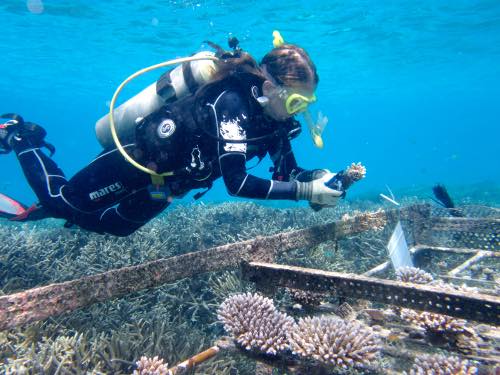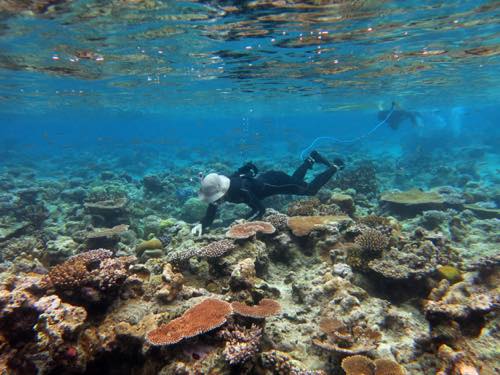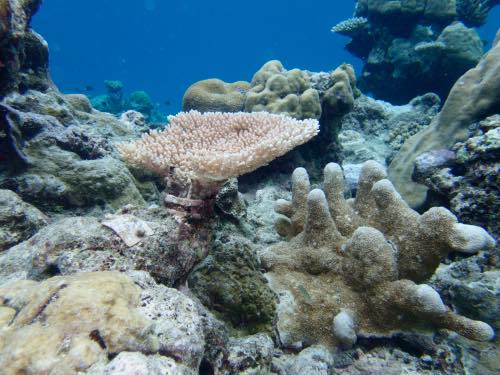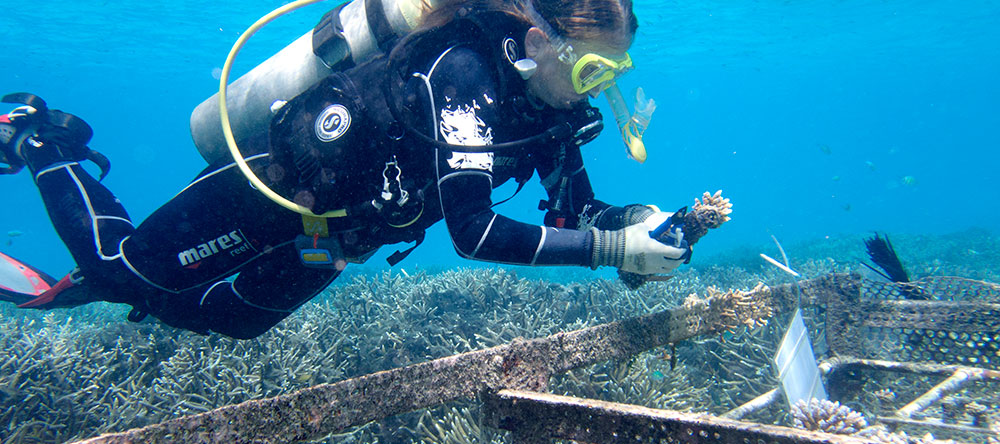- Research
CoralAssist Lab Visits PICRC for Coral Reef Heat Tolerance and Reproduction Experiments
CoralAssist Lab, a leading coral reef research group from Newcastle University, has been visiting the Palau International Coral Reef Center since March 2022 to study coral heat tolerance and reproduction on reefs in Palau.
The lab is one of the Center’s closest research associates and has visited Palau many times over the past five years for ongoing coral reef studies. The Center’s Chief Executive Officer Dr. Yimnang Golbuu is one of the lab’s official Research Collaborators and Research Assistant LeahMarie Bukurrou works to support their experiments at the Center.
During this visit, the lab’s research is focused on why certain corals within populations are more heat tolerant than others, as well as how heat tolerance is passed from parent corals to their offspring.
To measure heat tolerance, researchers collected corals from nearby reefs and treated them with warm water in the Center’s seawater tanks, simulating ocean warming. They found that some corals withstood the heat well while others in the population became stressed and bleached.
“Our results from a common branching coral species indicate that based on climate models and projected warming through the rest of the century, annual bleaching conditions may occur 1-2 decades later for the most heat tolerant corals than for the least heat tolerant corals” said Dr James Guest, the lab’s principal investigator. “We also found evidence that heat tolerance can be passed from parents corals to their offspring at various life stages (i.e., larvae, juveniles and adults).”
The lab is also exploring new outplanting techniques to resettle corals grown in nurseries onto wild reefs. The lab’s method involves specially designed substrates to protect young corals from predators as they mature. These methods could be used to restore damaged reefs or supplement wild populations of heat tolerant corals.
Each of the lab’s research results could serve as a proof-of-concept to guide coral reef managers as pressures from climate change and human activity increase in coming decades.
The lab has also led capacity building and community engagement efforts throughout their visit, hosting a public presentation and integrating their work with the Center’s research team.
“It’s very important for us to work with communities and local researchers in Palau to integrate, build capacity and do beneficial work. That’s as important to us as the research” Continued Dr. Guest. “We hope to continue working in Palau and grow our collaboration with PICRC even further.”





